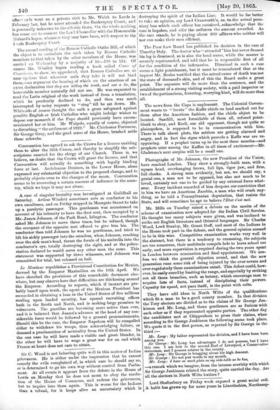The second reading of the Roman Catholic Oaths Bill, of
which the object is to assimilate the oath taken by Roman Catholic members to that taken by the other members of the House, was carrie 1 on Wednesday by a majority of 56-190 to 134. Of course Mr. Whalley began reading a book called Cases of Conscience, to show, we apprehend, that Roman Catholics are so unsc -upolous that whatever oath they take it will not bind them,—an argument the bearing of which on the exaction of an extra declaration that they are telling the truth, and not a lie, the honourable member naturally did not see. He was requested to read the Latin original of the work instead of from a translation, which he prudently declined to do, and then was much interrupted by noisy requests to "sing" till he sat down. Mr. Whiteside of course thought the oath a great safeguard against possible English or Irish Catholics who might indulge wishes to depose our monarch if the Pope should previously have excom- municated her or him. Mr Walpole, equally of course, objected to disturbing "the settlement of 1829." Mr. Chichester Fortescue, Sir George Grey, and the good sense of the House, brushed aside these cobwebs.






























 Previous page
Previous page